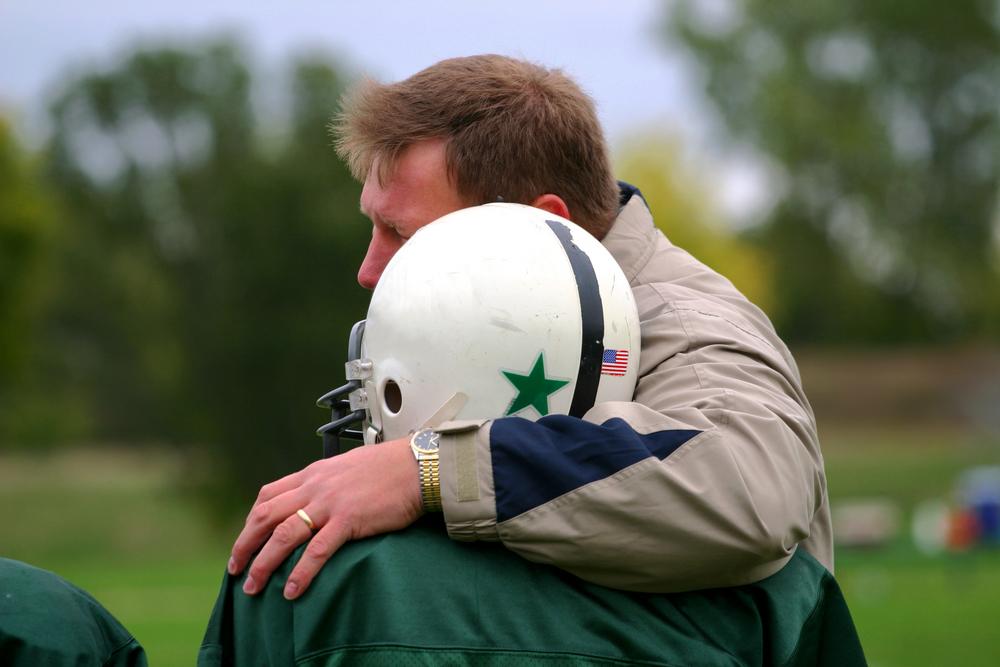 Have you waited until the last night before a report is due to write it? Or delayed doing laundry until you don’t have any clean clothes left? That’s procrastination, and it’s very common!
Have you waited until the last night before a report is due to write it? Or delayed doing laundry until you don’t have any clean clothes left? That’s procrastination, and it’s very common!
While it doesn’t always lead to bad outcomes, procrastination often comes with negative side effects, such as loss of sleep and damaged relationships, so it’s not a good habit to develop.
Here, TrueSport Expert Kevin Chapman, PhD, clinical psychologist and founder of The Kentucky Center for Anxiety and Related Disorders, is explaining why we tend to procrastinate and how to stop procrastinating once and for all.
Why do people procrastinate?
“Procrastination is avoidance, plain and simple,” says Chapman. Often, we tell ourselves we work better under a tight deadline or that we enjoy that ‘last minute’ feeling, but the reality is that we’re avoiding something.
“There are a lot of reasons why we procrastinate, but it all comes back to avoiding some feeling,” Chapman says. “One reason we procrastinate is because we’re experiencing anxiety, and it’s our way of trying to manage anxiety, which actually backfires and ultimately makes the anxiety worse.”
Another reason people procrastinate is due to lack of perceived reward. “If you perceive that an experience isn’t rewarding, then you’re likely to push it off to the last minute because it’s not motivating,” Chapman says.
“For athletes and students, fear of failure is another big reason for procrastinating,” he adds. “You push things off because you don’t want to make a mistake or look bad.”
What does procrastination look like for athletes?
Sometimes it’s hard to spot procrastination in our own lives. “Consider training goals,” says Chapman. “Say you know that you have to run a mile and a half at a certain time, and you have to be able to lift a certain amount by the time the football season starts. At the beginning of the summer, you know you need to get to work so you can hit those targets by September. But many of us will procrastinate on a goal like that for a variety of reasons.”
Maybe getting started in the gym is intimidating, or you lack motivation because you would rather relax over the summer. Regardless of why you procrastinate, the result is the same: you don’t put in the work and you’re unprepared to meet performance goals.
How do you stop procrastinating?
Start by identifying your procrastinating behavior. “Then, identify what emotion is attached to that behavior. Ask yourself, what emotion am I avoiding by procrastinating?”
From there, you can start planning. Chapman suggests using a sheet of paper with two columns. On the left side, list your procrastinating behavior. In the other column, come up with an alternative action—something you can do instead. It’s not necessarily the opposite of the procrastination behavior, but it is an action that moves you in the right direction.
 “For example, if I’m afraid of failure and that’s stopping me from going to the gym, my first step to list in that column would be to read the email and the PDF that coach sent me for the summer. That’s it,” says Chapman. “Next, I’ll ask a friend to train with me, or even just text me weekly to check in that training is going well.” These tiny steps add up to big results. The key is to shift into a task-based mindset: Focus on what the next task should be, rather than focusing on what could go wrong or the emotion you’re trying to avoid.
“For example, if I’m afraid of failure and that’s stopping me from going to the gym, my first step to list in that column would be to read the email and the PDF that coach sent me for the summer. That’s it,” says Chapman. “Next, I’ll ask a friend to train with me, or even just text me weekly to check in that training is going well.” These tiny steps add up to big results. The key is to shift into a task-based mindset: Focus on what the next task should be, rather than focusing on what could go wrong or the emotion you’re trying to avoid.
If low motivation is your problem, Chapman suggests breaking tasks down into more manageable chunks, and assigning small rewards to those smaller stepping stones. Did you hit the gym three times this week? Great—that’s a new pair of shoes, or a weekend hangout with friends.
The key isn’t just in making the alternative action plans, Chapman says. The real magic happens just by taking any action instead of putting it off entirely. These tiny actions help your brain separate the procrastination from the strong emotion. And once that happens, it’s easier to stop procrastinating altogether.
Sometimes, you have to dig a bit deeper to get to the root cause of your emotions. For example, fear of failure is often actually anxiety and shame attached to letting other people down. “In sport, this is particularly true,” says Chapman. “We don’t want to look bad, and we don’t want to let our coaches, teammates, and family down. So with fear of failure, we really have to start by asking if our expectations are realistic. We have to shift our focus to the process of competing, and not the outcome of competing—and you can do that with your two columns you’re working on!”
But what if you’re someone who thrives on a tight deadline?
Often people will say that they’re ‘good at procrastinating.’ They believe that they get the best grades and have the best performances when they’re under pressure. So, should they lean into procrastination since it’s helping them?
Definitely not, says Chapman.
“I vehemently disagree that anyone is doing better by procrastinating,” he says. “Even if the outcomes are decent, procrastination is still a form of emotional avoidance and that’s never good.”
“And the true high performers are not the ones putting stuff off,” he adds. “Putting something off to the day or hour before it’s due may work in the short term, but your body is paying attention. Your cortisol levels and your stress hormones are going higher and that’s not helpful or healthy. You may have done well on your report, but you were likely to be emotionally dysregulated during and afterwards, and you might have been hard to be around. It’s just not the recipe for success.”
_______________________
Takeaway
Procrastination stems from trying to avoid an emotion, such as fear, boredom, or anxiety. Identify the places and times when you tend to procrastinate, and write out the emotions that might be blocking you from getting the job done. Then, think through small action steps that you can take rather than focusing on the things that are stopping you from getting started. Often, taking these tiny first steps will help your brain move through procrastination and break the habit entirely.



